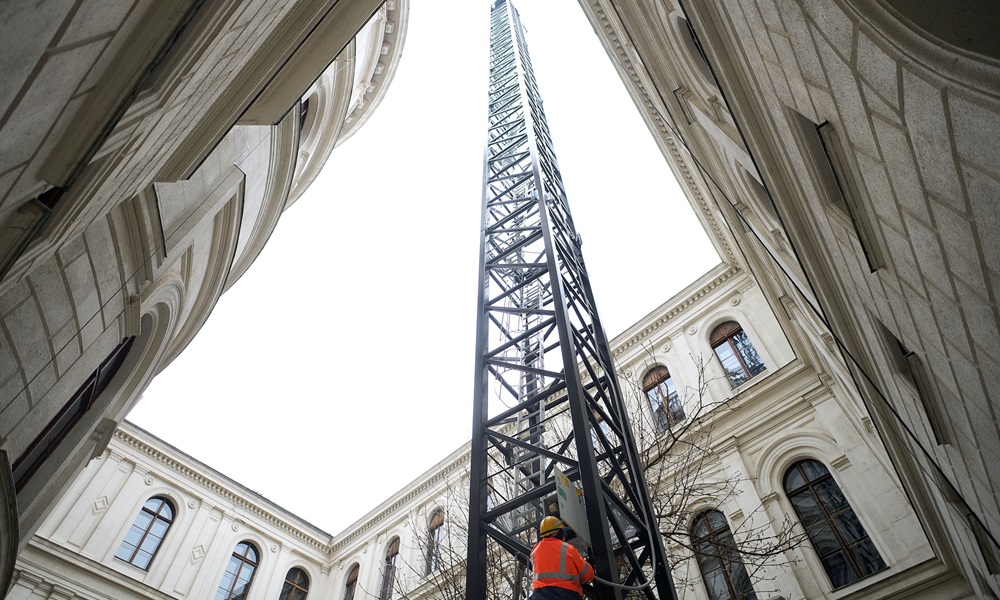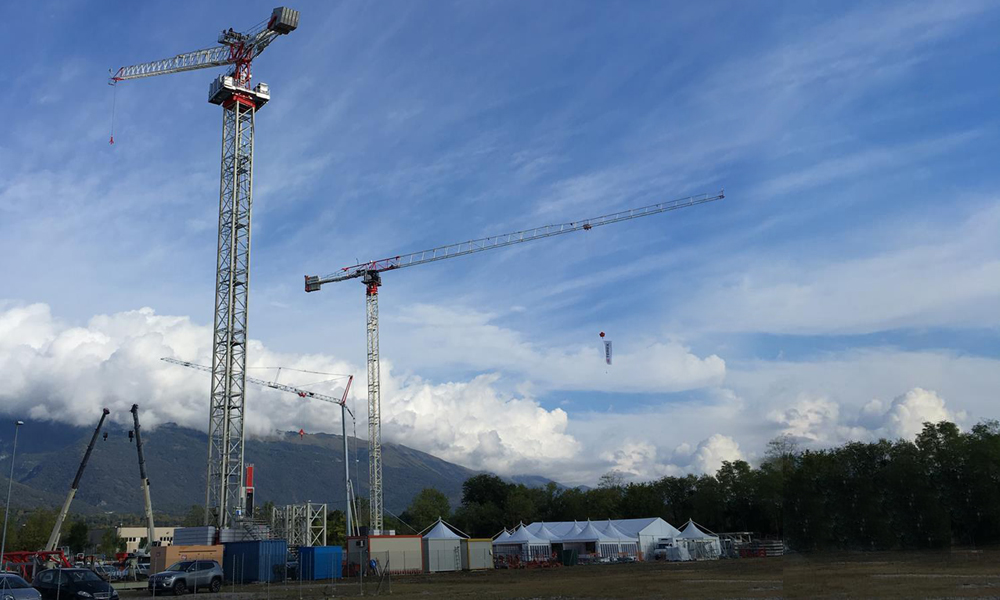Raimondi Cranes’ agreement to acquire Terex’s tower and rough terrain crane businesses is not only a headline-making deal, but also the culmination of a decade-long transformation that began with Middle East investment.
Founded in 1863 in Legnano, Italy, Raimondi evolved from a small equipment manufacturer into a globally recognised tower crane specialist. The turning point came in 2014, when Dubai-based KBW Investments, led by Prince Khaled bin Al Waleed bin Talal, acquired the company. At the time, Raimondi was described by KBW CEO Ahmed Alkhoshaibi as a “pillar in the portfolio,” anchoring the group’s ambitions in construction and infrastructure.
When the acquisition was announced in 2014, KBW had simultaneously revealed that it would invest around $100 million in Raimondi over a three-year time period. A fairly significant percentage of that sum was allocated to research and development.
Indeed, the KBW acquisition injected capital and vision into Raimondi, funding new product development, factory expansion, and global market entry. Crucially, the investment respected Raimondi’s heritage — its workforce in Legnano, steeped in loyalty and craftsmanship, remained central to the company’s identity. Alkhoshaibi highlighted the importance of retaining long-serving staff whose decades of expertise provided an “unparalleled advantage.”
Raimondi began life producing transmission equipment for cotton mills at the dawn of Italy’s industrialisation. By the mid-20th century, the company had shifted its focus entirely to construction equipment and, from 1946, tower cranes. Post-war Italy needed to rebuild, and Raimondi became a central figure in providing the machines that would reshape skylines.
Over time, the Raimondi name became synonymous with durability and craftsmanship. The company’s cranes were seen on jobsites far beyond Italy, and its reputation for quality ensured it stood out in a competitive global market. Yet by the early 2010s, like many heritage manufacturers, it faced the question of how to grow while preserving its legacy.
The KBW Turning Point
That turning point came in 2014, when Dubai-based KBW Investments, led by Prince Khaled bin Al Waleed bin Talal, acquired Raimondi. At the time, KBW CEO Ahmed Alkhoshaibi, who also is the founding CEO of Arada, described the decision as “a carefully thought-out move” — one that gave KBW a prestigious anchor in the global construction equipment sector.
Prince Khaled and Alkhoshaibi placed emphasis on respecting the Italian brand’s deep roots, investing in research and development, and ensuring long-serving employees — many with decades of intimate knowledge of Raimondi’s machines — remained central to the company’s identity.
“Raimondi’s team knew that we weren’t coming in with an attitude that suggested we were ignorant of the ownership and fealty they all felt toward its welfare as an Italian brand,” Alkhoshaibi reflected. In Legnano, where the company’s heritage loomed large, this respect mattered.
The acquisition brought with it the promised investment of $100 million, much of it directed toward product innovation and factory expansion. With new resources, Raimondi’s technical teams could experiment more boldly, producing inventive designs that drove sales growth and reaffirmed the brand’s place in the market.
Building Global Momentum
Backed by KBW, Raimondi expanded its footprint well beyond Italy. Full-scale operations were established in the GCC, including Saudi Arabia, the UAE, and Qatar, with more than 150 staff deployed across the region. Australia became another key market, where Raimondi cranes were rapidly adopted on residential and commercial sites.
The company’s global agents also played a pivotal role, positioning Raimondi machines on some of the most high-profile jobsites in Europe and beyond. Whether in Qatar, Algeria, or Sydney, Raimondi’s reputation as a trusted heritage brand with modern ambitions grew steadily.
Crucially, the company retained a people-first culture. Many Raimondi employees had spent 20 or even 30 years with the brand, and this depth of experience became a competitive advantage. “That type of knowledge-equipped human capital cannot be recruited or trained in a year or two,” Alkhoshaibi noted.
A Transformative Acquisition
Today’s acquisition of Terex’s tower, self-erecting, and rough terrain cranes — along with its North American support hub — represents the natural next chapter in this journey. It not only broadens Raimondi’s product portfolio but also places the company firmly on the path to becoming a global lifting conglomerate.
CEO Luigi Maggioni has called it “the most significant acquisition in Raimondi’s history,” a deal that combines Italian engineering heritage with Terex’s innovation and market presence. For Raimondi, it provides immediate diversification, access to new manufacturing capabilities, and a direct gateway to the lucrative North American market.
For Terex, meanwhile, the divestment allows it to sharpen its strategic focus while ensuring its crane legacy continues under a company committed to the lifting industry.
The combined entity will bring Raimondi’s workforce to around 400 employees and is projected to target annual revenues of $500 million by 2028. But beyond the numbers, this deal cements Raimondi’s position as one of the few crane manufacturers with the scale, heritage, and ambition to compete on a global stage.
It also closes a circle that began more than a century and a half ago in Legnano, was revitalised through Gulf investment, and now enters a new phase of global leadership.
As Raimondi integrates Terex’s businesses and steps into its new role, one thing is clear: this is not just the story of an acquisition. It is the story of how a heritage brand, respected by its people and nurtured by visionary investors, transformed itself into a global powerhouse in heavy lifting.


